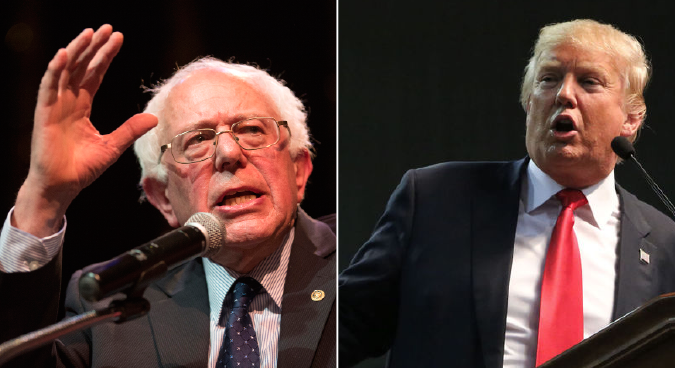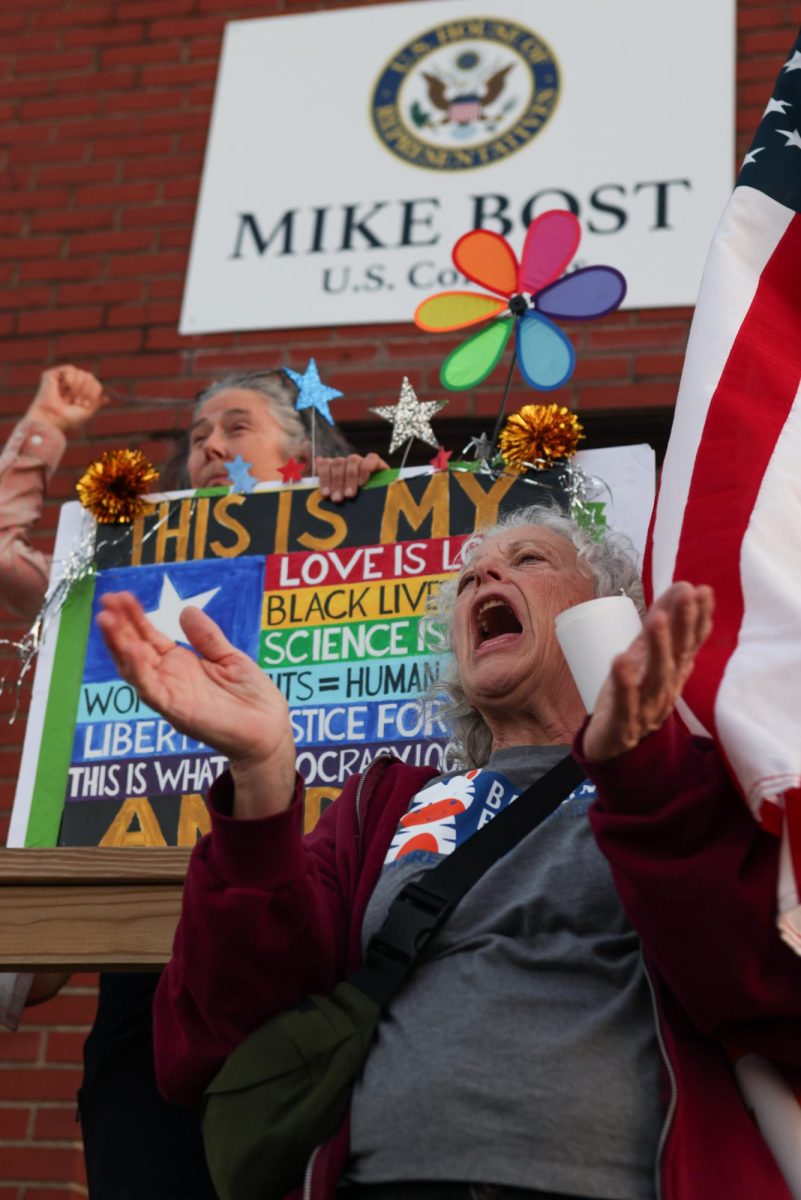Sanders shocks Clinton in Michigan while Trump bucks GOP backlash
March 9, 2016
The mainstream political establishment wakes up badly rattled this morning.
Vermont Sen. Bernie Sanders shocked the Democratic establishment Tuesday by upsetting former Secretary of State Hillary Clinton in Michigan, defying her large lead in the polls with a narrow victory. While Clinton swamped Sanders in Mississippi on Tuesday, racking up another victory in a Deep South state with a large share of African-American voters, Sanders won by appealing to Midwestern voters who feel crushed by two decades of free trade deals.
The victory energizes his campaign just as voters in similar upper Midwestern states of Ohio and Illinois — as well as Florida — prepare to cast ballots on Tuesday.
Advertisement
“What tonight means is that the Bernie Sanders campaign — the political revolution we are talking about — is strong in every part of the country,” Sanders said Tuesday. “And our strongest areas have yet to happen.”
Meanwhile, the Republican establishment missed badly in its attempt to derail Donald Trump’s march to the GOP nomination — he handily won the Michigan and Mississippi primaries Tuesday. Texas Sen. Ted Cruz won the Idaho primary. Trump also won the Republican caucus in Hawaii.
After weathering millions of dollars worth of attack ads in recent days funded by mainstream Republicans terrified by the possibility of him becoming the party’s face, Trump defiantly jutted out his chin Tuesday night at the establishment, including 2012 GOP nominee and Michigan native son Mitt Romney, who recorded robocalls urging voters there to reject Trump.
“Mitt was vicious,” Trump said during his victory speech. “I wished he’d used that same energy against Obama. I think he would have won.”
Both parties’ races in Michigan were shaped by the frustrations of voters left behind in the economic recovery.
Sanders pointed out to voters Clinton’s support of trade deals that have helped to send jobs overseas, a major issue in the nation’s automobile manufacturing capital.
“What we’re seeing on both sides is a frustration with the mainstream candidates,” said Jeremi Suri, a professor of public policy at the University of Texas at Austin. “The appeal of both a Trump and a Sanders shows that voters feel that the mainstream candidates are not serving them well.
Advertisement*
“Voters in Michigan were saying that free trade and globalization are harmful to their state,” Suri said.
Clinton’s ongoing challenge remains her trustworthiness. According to exit polls of Michigan voters, 6 in 10 Tuesday found her to be honest, compared with 8 in 10 who said the same of Sanders.
Tuesday’s results won’t change the mathematical contours of the Democratic race, as Clinton has a large lead in the number of delegates needed to clinch the nomination, largely because she has secured the pledges from the vast majority of superdelegates — elected officials and party officials. Because delegates are allocated proportionally, Sanders scored slightly more than half of the 130-delegate haul from Michigan while Clinton took home the bulk in Mississippi.
On the Republican side, Trump rolled on.
Propelled by less-educated whites who believe the New York billionaire speaks to their economic insecurity, Trump’s victories force the campaigns of Florida Sen. Marco Rubio and Ohio Gov. John Kasich to the brink of extinction.
In Michigan, Trump dominated in Macomb County, which has long been been identified as the iconic home of the Reagan Democrats, conservative Democrats who left the party 36 years ago to vote for Ronald Reagan and never returned. In Macomb, Trump received more than twice as many votes as Kasich, his closest competitor.
“The central question is: [In the general election], is he going to be cutting into the white voter that went Democratic for Obama?” said Steve Phillips, author of the new best-seller “Brown is the New White: How the Demographic Revolution Has Created a New American Majority.”
Kasich, who has yet to win a contest, needs to win his home state of Ohio to have any hope of remaining viable. He finished third, just behind Cruz, in Michigan on Tuesday, despite spending so much time campaigning there that he joked that he would have to start paying taxes.
Rubio, christened by the establishment as the anti-Trump choice, flat-lined Tuesday, finishing last in Michigan and Mississippi. If Rubio doesn’t win in his home state on Tuesday, he will probably return to Florida to complete his senatorial term, which expires this year, and plan his next career move.
Trump dominated the vote in Mississippi, where 84 percent of the voters were evangelical Christians, supposedly the backbone of Cruz’s campaign. Cruz has now lost eight Southern states with large evangelical populations to the thrice-married Trump, who has switched his positions on abortion and same-sex marriage.
Trump said Tuesday that while the GOP establishment has been busy attacking him and trying to kneecap his campaign, his unexpected success is generating excitement for the party.
“I want to thank the special interests and the lobbyists, because they did something to drive these numbers,” Trump said sarcastically.
Trump may have a point. Through the first 12 primaries of the campaign, the GOP turnout has been 17 percent of eligible voters – the highest primary level since 1980, according to a study released Tuesday by Pew Research Center. Democratic turnout has been 12 percent, the highest since 1992, with the exception of the high turnout in 2008, when President Obama and Clinton dueled in the primaries.
___
(c)2016 the San Francisco Chronicle
Visit the San Francisco Chronicle at www.sfgate.com
Distributed by Tribune Content Agency, LLC.
Advertisement










